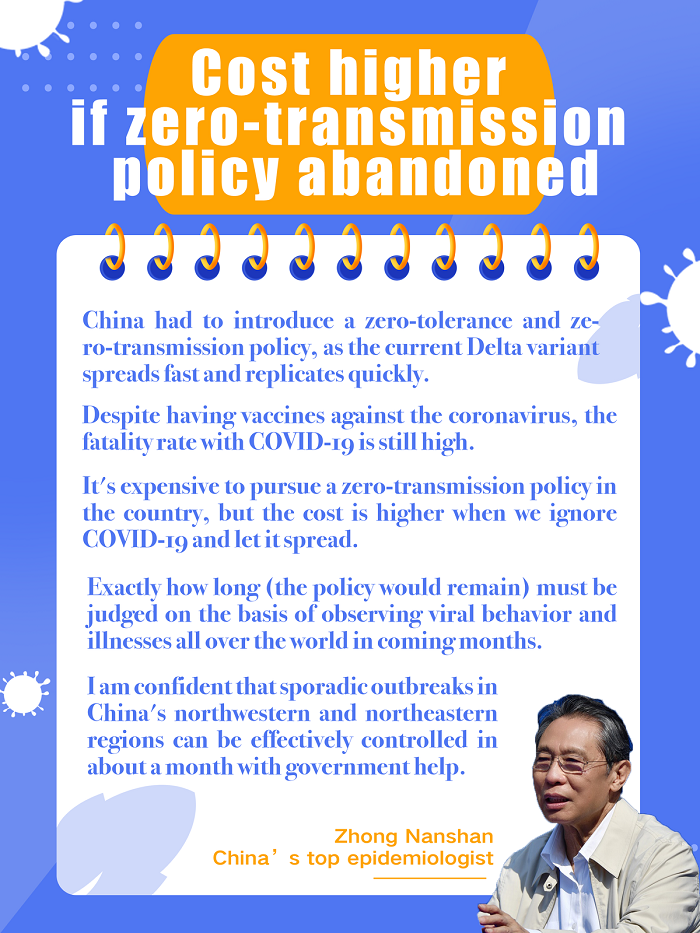Expert says tough anti-virus policy not too expensive
China will continue to pursue a zero-transmission policy against the coronavirus responsible for COVID-19, as the global fatality rate of 2 percent is still too high, a leading Chinese respiratory disease expert said.
Zhong Nanshan, an academician of the Chinese Academy of Engineering, said he is confident that sporadic outbreaks in China's northwestern and northeastern regions can be effectively controlled in about a month with government help.
A local outbreak of the coronavirus in Guangzhou, Guangdong province, in May and June was controlled in about a month, while another outbreak reported in Nanjing, Jiangsu province, was tamped down within 26 days, he said.
Zhong explained in an interview with CGTN on Monday how China had achieved such success.

"The first is to find the first patient and trace where he or she came from. Second is to determine the infection chain," Zhong said. "Third is to find close contacts in the infection chain, so that they can be screened in a timely manner. And fourth is that all the close contacts are isolated and tested in time to prevent the coronavirus from spreading in local communities."
Zhong said China had to introduce a zero-tolerance and zero-transmission policy, as the current Delta variant spreads fast. It replicates very quickly.
Despite having vaccines against the coronavirus, the fatality rate with COVID-19 is still high and China can not tolerate that, he said.
He admitted it's expensive to pursue a zero-transmission policy in the country, but he said "the cost is higher when we ignore it and let it spread".
Zhong added that imported cases of COVID-19, or sporadic outbreaks, will certainly be reported in the country if China opens to the world in the months to come. Therefore, he said, he thought the policy would remain in place for a long time. Exactly how long must be judged on the basis of observing viral behavior and illnesses all over the world in coming months.
"No matter how well China does, there will be imported cases when the country opens its door. Therefore, under such circumstances, I think China's zero-tolerance strategy doesn't cost too much. It's a relatively low-cost approach," he said.
